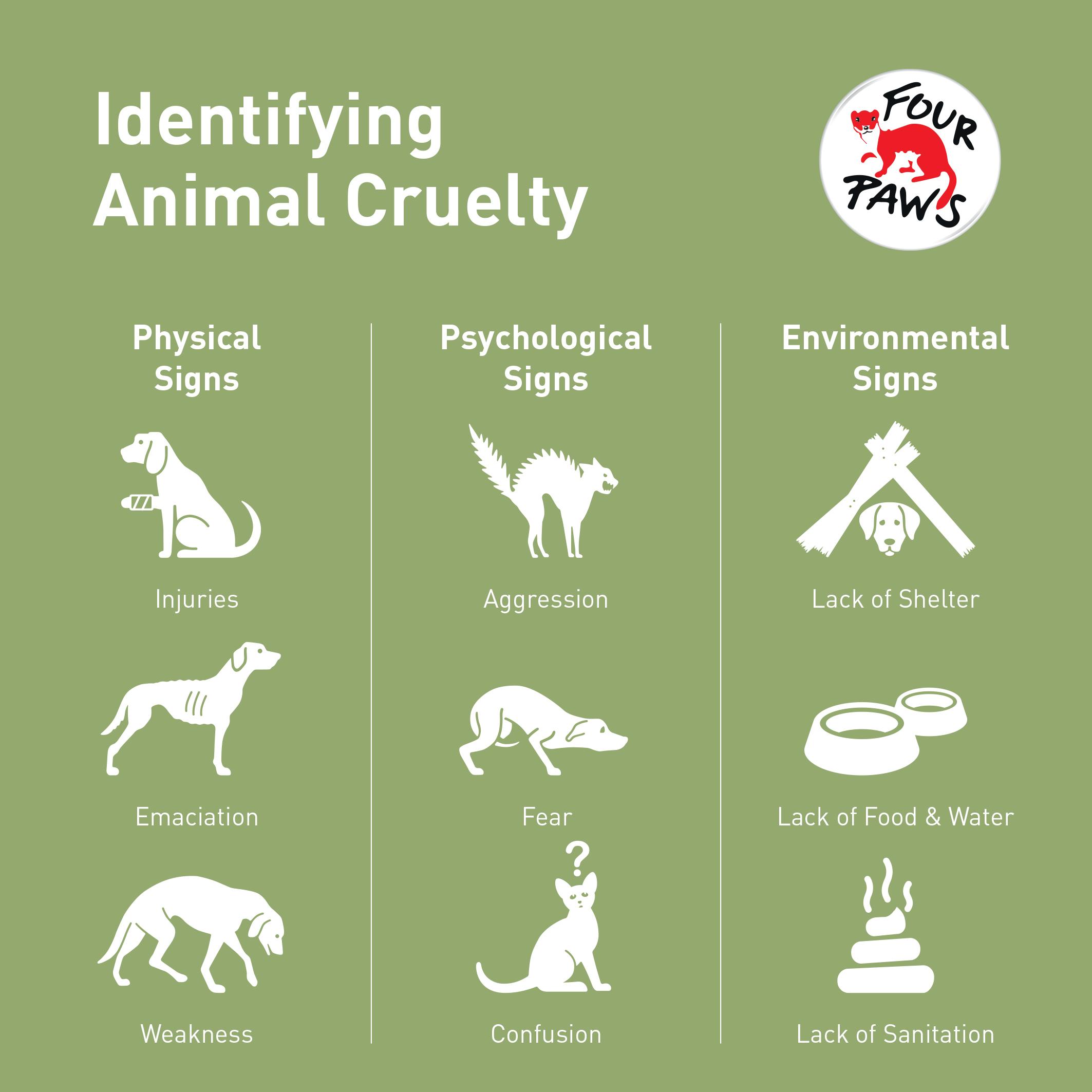
How to identify cruelty to animals
FOUR PAWS explains what you need to look for to recognise the signs of a potential cruelty situation
Cruelty to animals can take many different forms. These range from suffering caused by the way a pet is kept to acts of violence such as hitting or kicking.
Looking out for the physical, psychological and environmental signs can help to identify animal cruelty.

Physical signs
- Other signs of physical abuse
- Visible lack of upkeep (matted fur, overlong nails, etc.)
- Hair loss, skin conditions, scabs
- Injuries, open wounds, sores
- Infection and disease
- Infestation with parasites such as fleas, ticks and worms
- Visible emaciation and malnutrition
- Extreme weakness and generally poor physical condition
Psychological signs
Generally, abused animals are fearful of their owner, shy away from touch or become aggressive as a defense mechanism.
- Confusion or drowsiness
- Anxious or aggressive behaviour
- Evasive behaviour
Environmental signs
- Inadequate shelter
- Lack of fresh water and food
- Lack of proper socialisation and interaction (either with animals of the same species or with humans)
- Signs of animal hoarding
- Poor sanitation
- Lack of veterinary treatment
